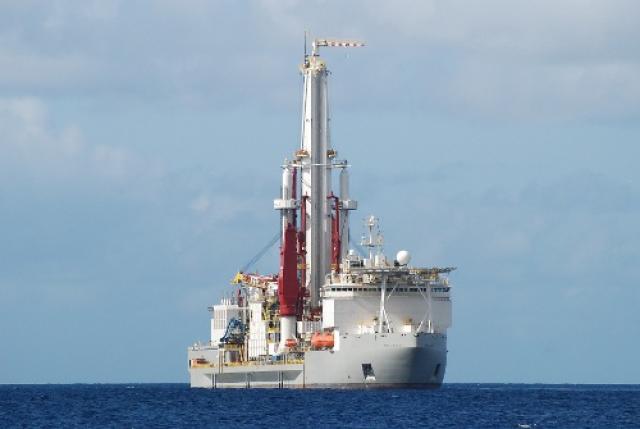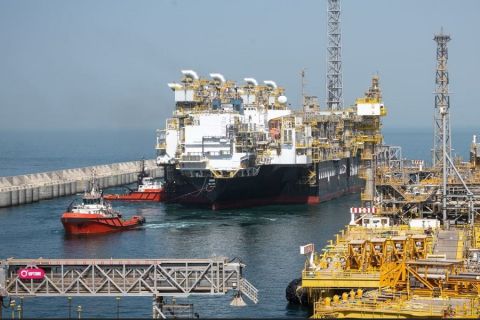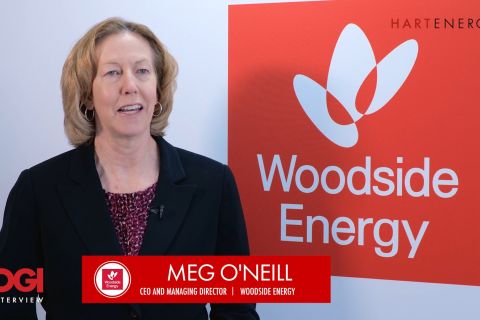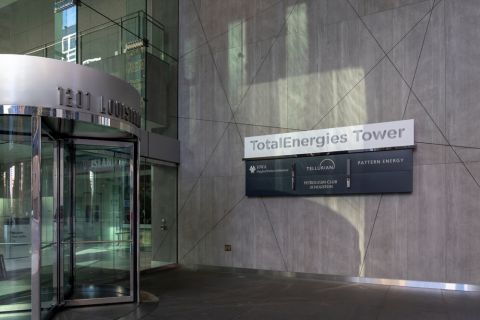
Israel’s giant Tamar and Leviathan offshore natural gas discoveries of recent years are already amazing observers as an emerging super-asset for this historical importer of all its petro-energy needs.
The World Energy Council (WEC) and other key analysts of the global energy balance are beginning to foresee possibilities that tiny Israel could potentially outpace even the Middle East’s hydrocarbon kingpin, Saudi Arabia, in oil and gas production in years to come.
According to a recent WEC assessment, there are thought to be tremendous, offshore oil resources of maybe 5 billion barrels associated with the giant gas fields – while onshore, Israel could have up to 250 billion barrels of hydrocarbon potential underlying shale formations, a possibility that’s forged new foreign policy ties with Canada, with others in the works.
Yet this potential petro-bonanza is fraught with political firestorms, not the least of which are that Israel’s deep offshore gas-prone fields lie in Eastern Mediterranean waters disputed primarily by Lebanon but that also near territorial waters claimed by Turkey, Cyprus, and even Gaza.
Offshore, longer term, the outlook for Israel's natural gas sector is cautiously optimistic, as some of the country's major gas discoveries move closer to development.
Israel has a burning need to get domestic gas to market, given Egypt’s recent cancellation of a 20-year-old gas supply agreement, which also affects Jordon.
More and more international players are setting out to test their luck in the region, where the huge natural gas reserves in the Tamar and Leviathan offshore fields have only come to light within the past five years.
One of the major players off Israel is Noble Energy. With its partner the Delek Group, the companies said that the Leviathan deepwater discovery contains enough gas to supply Israel’s needs for 150 years.
Noble is seeking a partner to develop an LNG project, which it says could cost as much as $5 billion. For 2013, the company said it plans a deeper well next year to search for Israel’s first offshore crude finds.
All told, Noble data showed that various explorers have found about 28 Tcf offshore Israel. The gas would be worth about $240 billion, equal to Israel’s annual economic output, based on today’s prices in the UK, according to calculations of BP data by Bloomberg news.
A group of smaller companies have also made a gas discovery earlier in 2013 near the border with Cyprus. AGR, the operator of Aphrodite 2, said the well encountered a 15-m (49.5-ft) thick gas-bearing layer in lower Miocene sands. The well was drilled to a total depth of 5,187 m (17,117 ft).
AGR holds a 5% interest in five Pelagic licenses (Ishai, Aditya, Lela, Yahav, and Yoad). Other partners are Nammax Oil and Gas Ltd., 42.5%, Frendum Investments Ltd. and Daden Investment Ltd., a combined 42.5%, and Israel Opportunity, 10%.
Generally, major oil, such as Shell, Exxon Mobil, and Chevron will be deterred from investing in Israel because of interests they have in the rest of the Middle East, Bloomberg also said.
According to the research and analysis group, Business Monitor International (BMI), “Israel is primed to emerge as an exporter of gas over the course of BMI's forecast period to 2021.”
BMI expects gas production to reach just over 706 Bcf by 2021, if the Leviathan field comes on-stream by 2017. Despite the significant potential at Leviathan, risks are also rampant, BMI noted. For instance, development of the promising Mari-B field is challenged by its location offshore Gaza. “The Israeli government and the Palestinian Authority entered into negotiations over the development of the field in September 2012, although significant challenges, including disagreements over revenue sharing, endure,” BMI noted.
“While gas production is set to rocket, oil also holds considerable potential, both in the form of deep offshore reservoirs and a pilot scheme for oil shale, which could potentially unlock several billion barrels of reserves,” BMI added.
Considerable deposits of oil shale exist in parts of Israel, principally north of the Negev Desert. BMI said, “Estimates of the theoretical reserves total some 300 billion metric tons, of which those considered to be open-pit mineable are put at only a few billion metric tons. The largest deposit (Rotem Yamin) has shale beds with a thickness of 35 m to 80 m (115 ft to 264 ft), yielding 4,297 to 5,084 of oil per metric ton.
Generally speaking, Israeli oil shales are relatively low in heating value and oil yield, and high in moisture, carbonate, and sulphur content, compared with other major deposits.” Oil shale is already being mined by companies accessing the phosphate reserves underlying the rock, BMI said.
Recommended Reading
Technip Energies Wins Marsa LNG Contract
2024-04-22 - Technip Energies contract, which will will cover the EPC of a natural gas liquefaction train for TotalEnergies, is valued between $532 million and $1.1 billion.
Tech Trends: Halliburton’s Carbon Capturing Cement Solution
2024-02-20 - Halliburton’s new CorrosaLock cement solution provides chemical resistance to CO2 and minimizes the impact of cyclic loading on the cement barrier.
BP: Gimi FLNG Vessel Arrival Marks GTA Project Milestone
2024-02-15 - The BP-operated Greater Tortue Ahmeyim project on the Mauritania and Senegal maritime border is expected to produce 2.3 million tonnes per annum during it’s initial phase.
The OGInterview: How do Woodside's Growth Projects Fit into its Portfolio?
2024-04-01 - Woodside Energy CEO Meg O'Neill discusses the company's current growth projects across the globe and the impact they will have on the company's future with Hart Energy's Pietro Pitts.
TotalEnergies Acquires Eagle Ford Interest, Ups Texas NatGas Production
2024-04-08 - TotalEnergies’ 20% interest in the Eagle Ford’s Dorado Field will increase its natural gas production in Texas by 50 MMcf/d in 2024.





